SUMMARY
This is AI generated summarization, which may have errors. For context, always refer to the full article.
![[OPINION] Why it’s time for the churches to do politics](https://www.rappler.com/tachyon/2022/03/churches-politics-march-10-2022-1.jpg)
The Church historically has been an active agent in politics, as in the struggle between Pope and King in medieval times. But for 200 years or so, it has mostly retreated from public life, letting secularism set the rules and the agenda for organizing society. As a consequence, it has been reduced to mumbling in corners about the meaning of its own symbols, and its ideals relegated to irrelevance.
We live in a time when the promise of globalization to “lift all boats” has proven to be a mirage. We are seeing instead the massive pauperization of the world and the concentration of wealth in a very few.
The churches must recognize that poverty is primarily caused and perpetuated by injustice that is organized and embedded in structures.
“On the side of the oppressor is power,” says Eccelesiastes (Ecclesiastes 4.1). While power may be used for good, it is often biased against the weak and the poor. The prophet Isaiah speaks of princes who are “companions of thieves” and do not bring justice to the fatherless; the widow’s cause does not even come within hearing distance.
At best, the powers are described by Jesus as indifferent. They could be made to respond to petitions by small people, but only by persistent and relentless appeals, like the case of the importunate widow (Luke 18.1-8).
Much of the poverty in the world today is due not only to the residues of colonial history but to bad governance of the ruling classes. The restoration of “democracy” in many parts of the world has been rendered useless in contexts where political rights are meaningless to the poor. This failure has served as fodder to the populist rhetoric of elected autocrats that now grip many countries with their iron fists.
Massive poverty is a smoke signal that the institutions are not working.
While it is true that the churches in many nations and the civil societies within them are rising to fill the deficits in justice and social services, almsgiving and the proliferation of welfare and disaster agencies cannot substitute for the effective functioning of the institutions mandated to enforce equity and build a sound economy that reduces poverty to a minimum.
History shows that when society relegates the plight of the poor to charity, it can feed rather than alleviate poverty. As in the Middle Ages, it can get spiritualized, making poverty a mystical state. The practice of charity slips into spiritual banking, a way of piling up “treasures in heaven,” securing merit or indulgences for the afterlife or some such return for one’s investment, besides creating paternalistic dependencies between giver and receiver.
It is business institutions and not state enterprises as in China nor NGOs that God has ordained to serve as the engine for growing a nation’s economy. It is decent, productive work that is meant to sustain people, not charity.
Likewise, it is the core business of government, not civil society, to enforce justice – the state is given authority to wield the sword to “punish those who do evil and to praise those who do good”(1 Peter 2.13).
A strong state can only be made possible, not by repression and curtailing dissent in the name of “peace and order,” or the “war on terror,” but by sending strong signals to high and low that the rule of law shall be enforced without fear or favor.
Gunnar Myrdal had long ago diagnosed that “soft states” – those whose rule-keeping tend to get slippery because the institutions are riddled with corruption and subject to the oily machinations of the powerful – are seedbeds to perpetual poverty.
To serve the poor is to get political; inevitably, we will run into issues of power. In many countries, access to resources is not a right but a thing you fight for. For the poor to even have the minimum conditions for survival, inserting their voices in the public square is necessary.
Central to the transforming role of the church is its obligation to speak with a prophetic voice to abusive powers. It is part of our office as “kings,” as vice-regents of the God of justice. We are called to exercise “dominion,” but this is not to be interpreted as lording it over all – that we are to be “masters of society,” as some quarters suggest. It is to serve the creational purposes of God in whatever calling he has given to his people as “salt” and “light” in the world.
The church’s political role is not primarily to put Christians into office, or even to insert its own interests into political space as a power bloc, like the Religious Right in the US or, in our context, the Iglesia Ni Kristo. This is a regressive return to a Constantinian understanding of the role of the church vis-à-vis the state.
The church as an institution is not called to usurp the powers of the state and run its affairs, as has happened in the Middle Ages or in the de facto friocracy that held sway in this country under Spanish rule.
The church’s calling is to preach the Word in such a way that it is truly a conscience to society, a “voice for the voiceless.” As the poet T.S. Eliot once put it, “The church’s message to the world must be expanded to mean the church’s business to interfere with the world.”
This is the functional equivalent in our time of this oracular admonition addressed to King Lemuel by his mother:
“Open your mouth for the mute, for the rights of all who are destitute. Open your mouth, judge righteously, defend the rights of the poor and needy” (Proverbs 31:8-9).
Power is to be used in defending the rights of those who cannot secure it for themselves. Those wanting to be in positions of power are to see to it that justice is realized for the good of all, and especially for those of particular concern to God: the poor, the widow, the orphan, and the sojourner. This prophetic advocacy on behalf of those who are voiceless can no longer be ignored in a time such as this.
Compassion fatigue and the growing sense of futility in responding to what looks like bottomless pits of need should warn us that we cannot go on ignoring the structural reasons for why people remain poor.
In the words of Martin Luther King: “We are called to play the Good Samaritan on life’s roadside, but that will only be an initial act…. We must come to see that the whole Jericho road must be transformed so that men and women will not be constantly beaten and robbed as they make their journey on life’s highway.” – Rappler.com
Melba Padilla Maggay, PhD is from the Institute for Studies in Asian Church and Culture.
Add a comment
How does this make you feel?
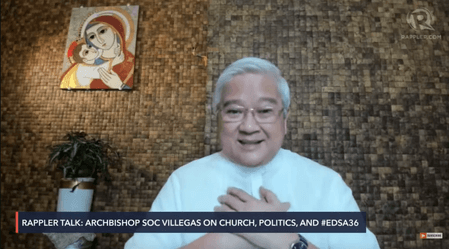

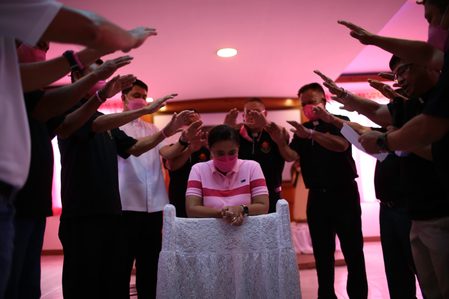
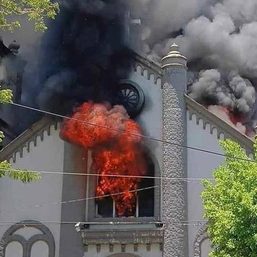
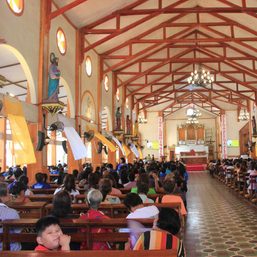
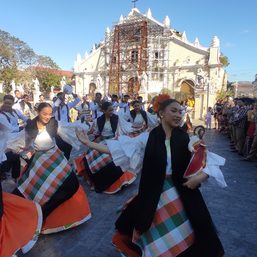
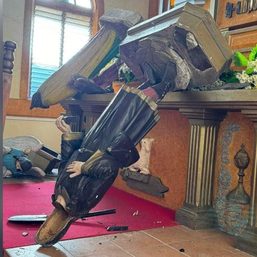
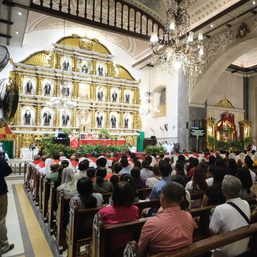
There are no comments yet. Add your comment to start the conversation.